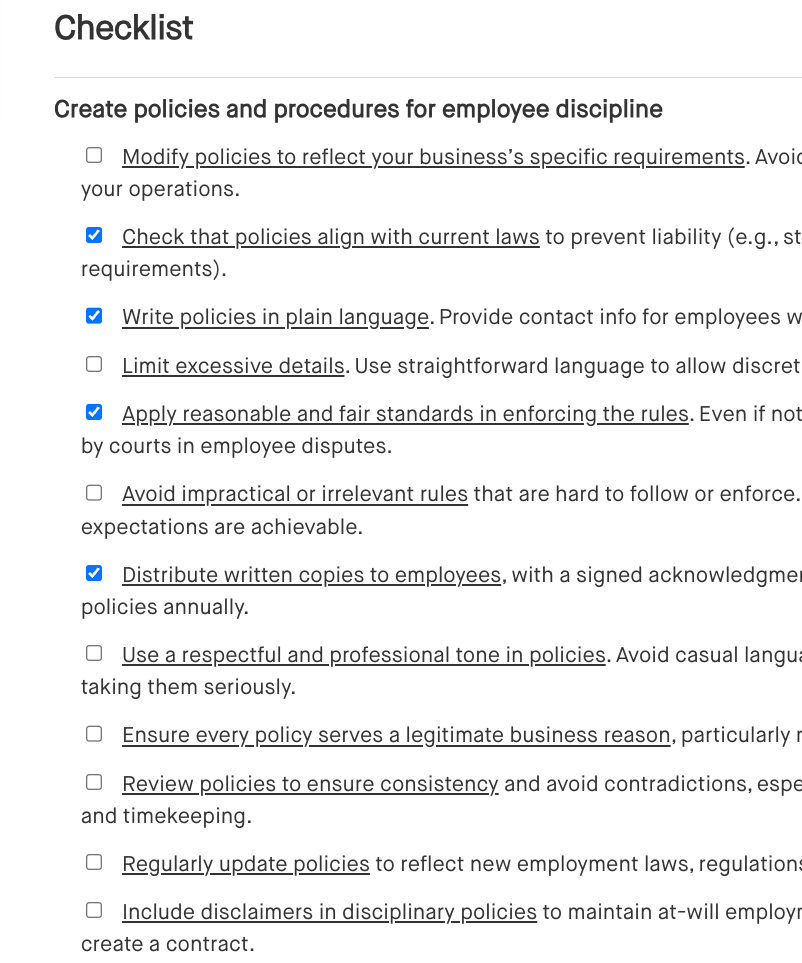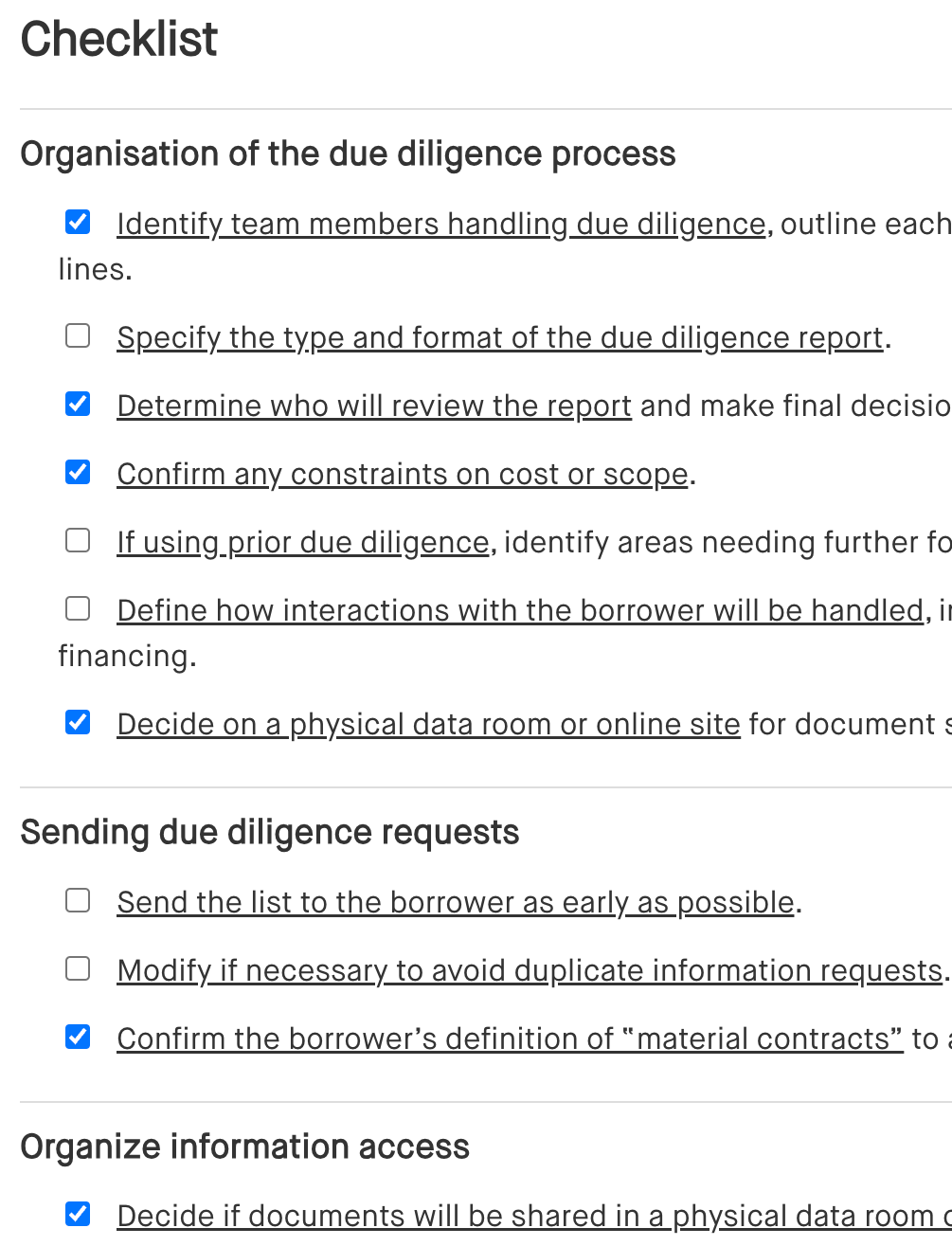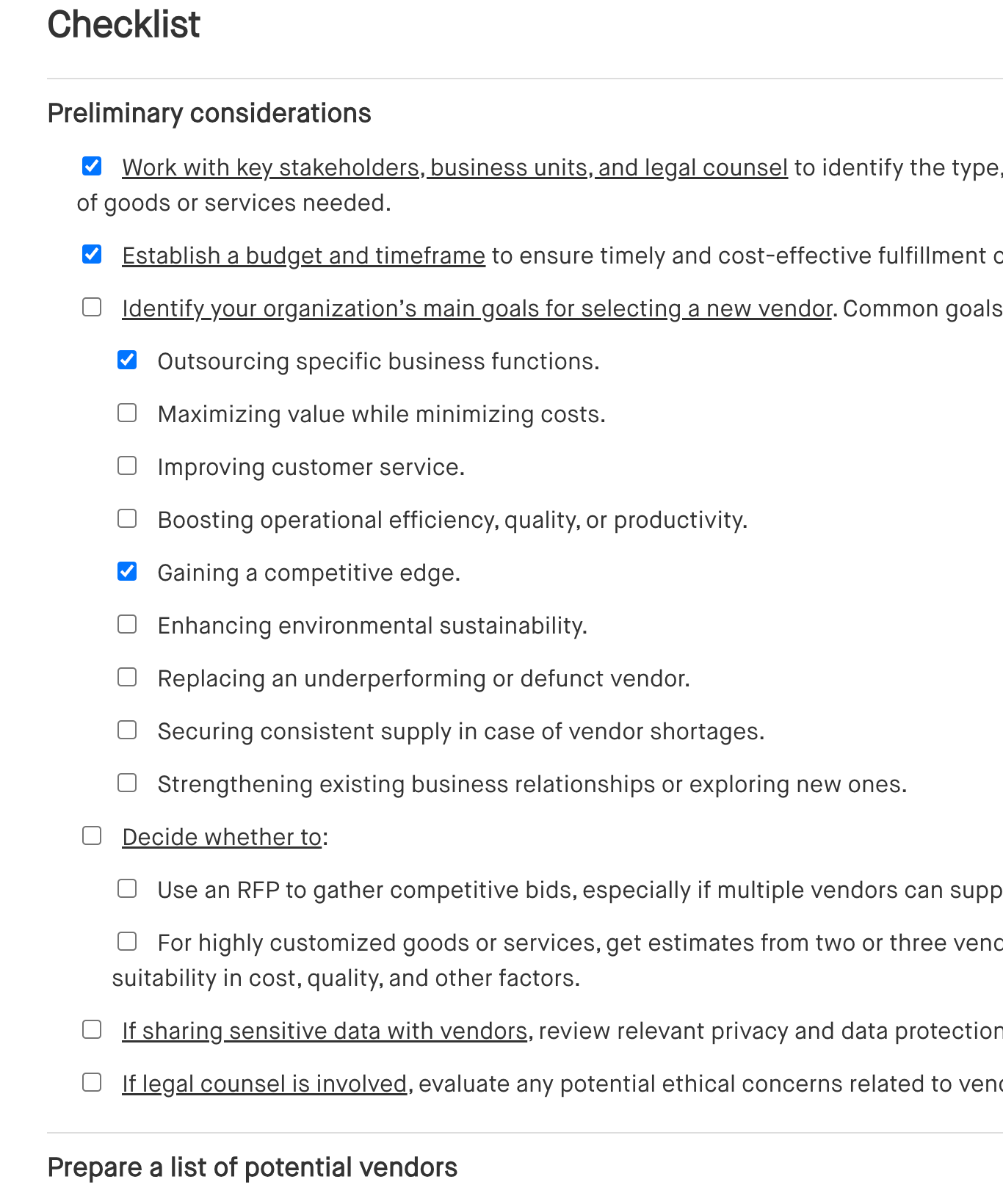Creating a contract playbook: Free checklist
Creating a contract playbook checklist
Creating a contract playbook can transform how your company handles contracts, improving consistency, reducing risk, and speeding up negotiations. This checklist guides you through the essential steps to build and implement a comprehensive contract playbook tailored to your business needs.
By following this contract playbook checklist, you’ll ensure that your company has a clear, standardized approach to managing contracts, empowering your legal and business teams with the tools and guidance they need to negotiate effectively.
How to use this creating a contract playbook
Here’s how to make the most of your contract playbook checklist:
- Follow the structure: This checklist takes you through each phase of building a playbook, from initial strategy to rollout and maintenance. Use it as a roadmap to ensure you cover all the important aspects of your contract process.
- Customize for your business: Adapt the checklist to fit your company’s specific contracting needs, industry, and risk profile. Every business is unique, and your playbook should reflect your operational goals and risk tolerance.
- Involve key stakeholders: Use the checklist as a collaborative tool. Engage with legal teams, business units, and executives to gather insights and ensure the playbook reflects the needs of all departments.
- Track progress: Mark off tasks as you complete them to stay organized and ensure nothing is missed. A well-structured playbook requires thorough planning and attention to detail.
- Keep it updated: Contracts evolve, and so should your playbook. Use this checklist to periodically review and update the playbook based on changes in law, business needs, and feedback.
Checklist
Benefits of using a creating a contract playbook checklist
Here’s how this contract playbook checklist helps streamline your process:
- Consistent contract management: It helps your team follow a clear, unified approach to drafting and negotiating contracts, reducing errors and inconsistencies.
- Faster negotiations: By providing pre-approved language and solutions for common issues, you’ll speed up the negotiation process and close deals quicker.
- Reduced legal risk: With standardized clauses and fallback options, you can manage risks more effectively, making sure your contracts align with company policies and legal requirements.
- Improved training: It serves as a practical resource for both new and experienced team members, guiding them through complex contracts and helping them stay aligned with best practices.
- Clearer decision-making: The checklist helps ensure your contracts are well-structured, with clear escalation points and designated responsibilities, so nothing gets missed.
Frequently asked questions (FAQs)
Q: What is a contract playbook?
A: A contract playbook is a guide that outlines standard language, clauses, negotiation strategies, and procedures for drafting and managing contracts. It helps ensure consistency and reduce legal risks across all contracts.
Q: Who should use a contract playbook?
A: It’s used by legal teams, contract managers, business units involved in contract negotiations, and anyone responsible for drafting or reviewing contracts.
Q: How does a playbook improve contract negotiations?
A: A playbook provides standard clauses, fallback options, and negotiation tips that help resolve issues faster, ensuring your contracts are clear, compliant, and aligned with company objectives.
Q: What types of contracts can a playbook cover?
A: A contract playbook can be tailored to cover all contract types your company uses, from NDAs to service agreements, purchase orders, or more complex deals.
Q: How often should we update our playbook?
A: Playbooks should be regularly reviewed and updated based on changes in the law, company policies, or contract performance to ensure they stay relevant and effective.
This article contains general legal information and does not contain legal advice. Cobrief is not a law firm or a substitute for an attorney or law firm. The law is complex and changes often. For legal advice, please ask a lawyer.


